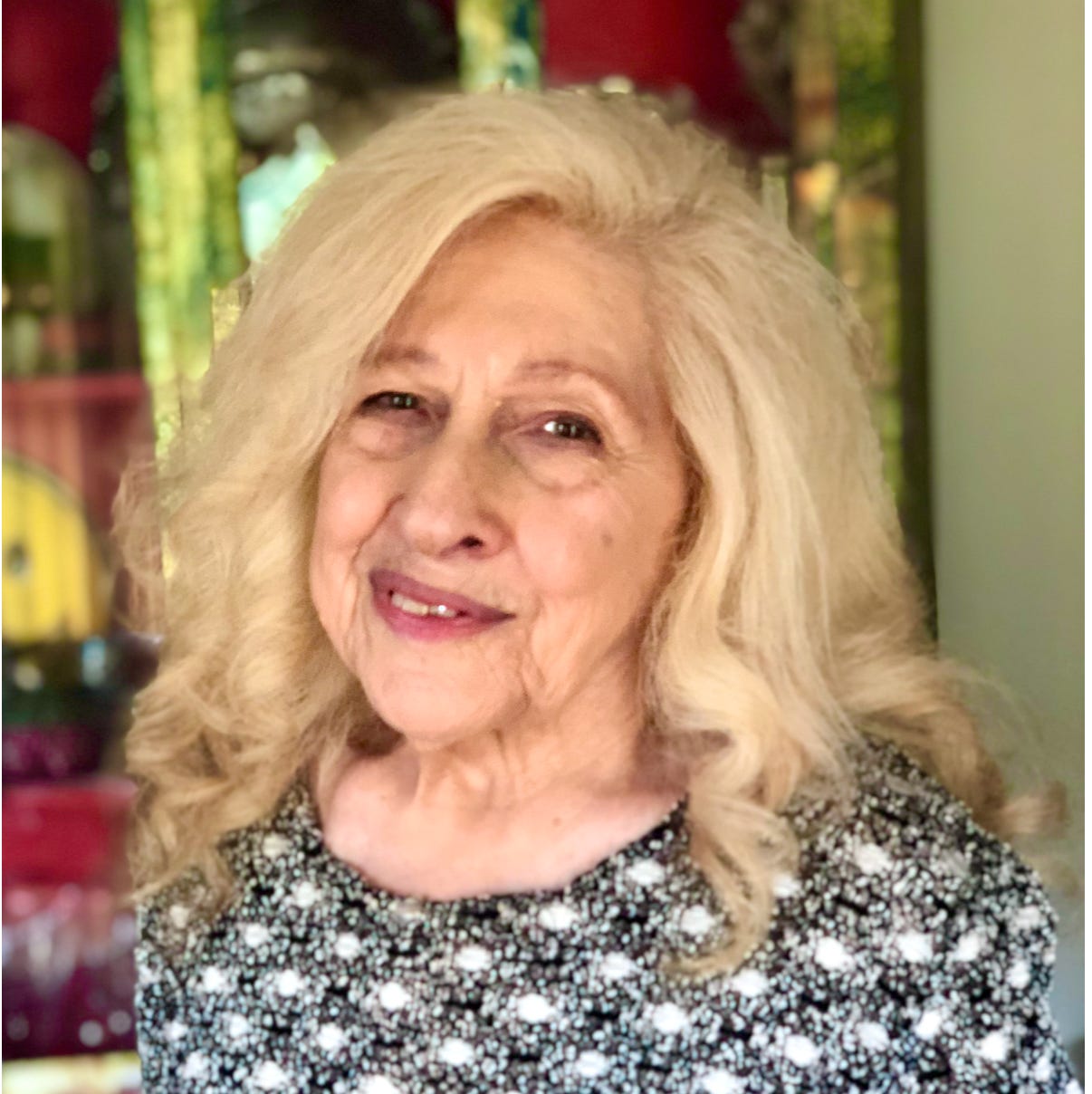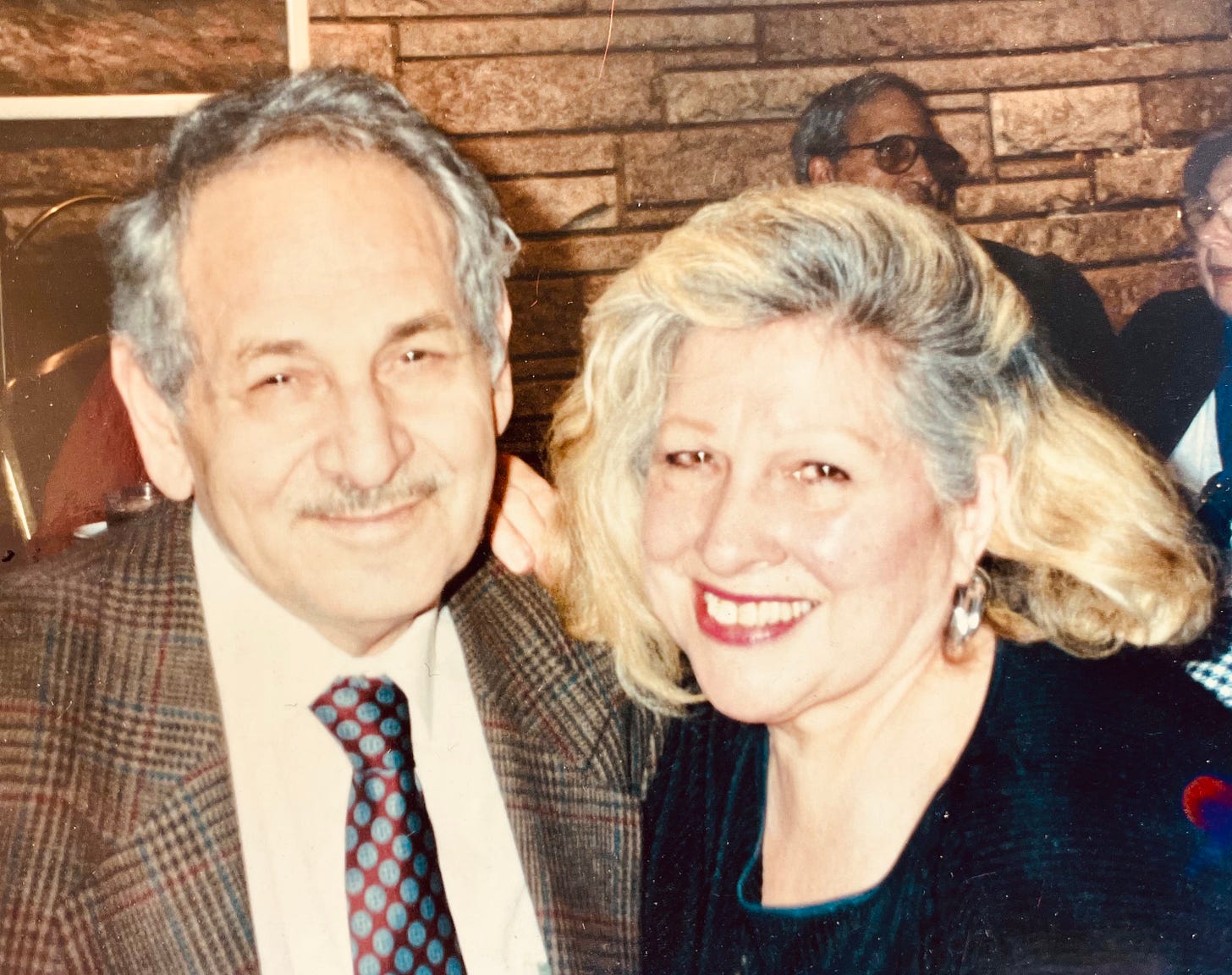“We are born to die,” was a frequent expression my Mother shared with my sister, Dawn, and I growing up. On some level that was her way of helping us understand the circle of life. But despite intellectually grasping that concept, the loss of a loved one still hurts.
On Saturday, my 93-year-old beloved mother, Camille LoCascio Obeidallah, passed away. For almost all of us, when a parent passes, there will neither be headlines nor breaking news banners on cable news. But to us, our lost loved ones are more important to our lives than those who garner such attention.
I want to use my newsletter to share with you a little of her story, as well as my late father, Abdul. And I sincerely invite others—if you are so inclined—to share memories of recent lost loved ones in the comment section to this article as a way to celebrate them.
To call my mom, “feisty” is an underestimate. She was a bigger than life, child of Sicilian immigrants who grew up in Lodi, New Jersey, a blue-collar town in North Jersey about 20 minutes from New York City. Perhaps my mom’s flamboyance was a result of her being the youngest child in a big Sicilian family. I can only imagine that it took a lot to get attention in her family filled with extroverted, flashy people.
I never met her parents—my grandparents—since both died before I was born. But they shaped her which in turn shaped me and my sister, Dawn. My mom lost her own mother, Grazia, at 16, leaving her to be raised by her very, very tough Sicilian father, Giuseppe. That toughness has been handed down to us. It’s where my fighting spirit comes from.
She explained the world as it truly was. There was no glorification of the mafia by my mother, but only the explanation that Sicilian immigrants were compelled to band together to help each other because they were being discriminated against in their new home country. Countless times when I was younger we would watch “The Godfather” and my mom would say about certain mafia characters in the film, “Your grandfather knew that guy.” When I explained the movie was not based on a true story, she would respond with a look of amusement that I was so naïve.
Somehow this devoutly Catholic, Sicilian (Not “Italian,” she would remind us) woman whose first language was Italian met my Palestinian, Muslim immigrant father who had a strong Arabic accent only about six years after he immigrated to the country. Where could such a pair meet you ask? New Jersey, of course.
My immigrant father—like countless immigrants today and then—worked numerous jobs to make ends meet. While primarily a chef—he was working as a cook in the US embassy in Jordan where a diplomat helped him immigrate to New Jersey—he also tried his hand at other fields as well. Given his non-stop working, it was our mother who raised my sister and me.
She taught my sister and me the need to stand up for yourself and go after what you want. Mom would repeatedly tell me, “No one is going to give you anything, you have to take what you want.” I would joke with her that is called, “shoplifting.” But she was right. I have long combined my mother’s sense of doggedly going after goals with my father’s work ethic.
She also taught us to question authority. But not in the vein of, “The government is out to get you.” More along the lines of no one is her boss. One example stands out after my parents sold a diner they had owned for years, The Derby Diner, when she took a job at Sears in the women’s clothing department. She would come home from work and angrily share about her manager, “He keeps telling me what to do.” Adding, “he’s not my boss.” We would explain that actually he is the very definition of your boss. But she was not having any of that—and the job didn’t work out. My mom may have been the first person to use the phrase, “You're not the boss of me.”
But her actions did have an impact on how I, too, question what is being told to me by people in power.
My parents remained together until my father passed in 1998. The hope is they are now reunited in heaven—where they can enjoy time together. While they have both passed, they are still both loved, missed and continue inspire us.
Only in America—or more precisely—in New Jersey, could these two vastly different people meet, marry and thrive together.
In closing, I want to share the words of President Biden—a person who has lost dear loved ones—that he has offered to others in mourning: “There will come a day, I promise you, when the thought of a lost loved ones brings a smile to your lips before it brings a tear to your eye. It will happen.” He added, “My prayer for you is that day will come sooner than later.”
I look forward to that day.







...beautiful words!!
That's a beautiful eulogy, Dean. You've spoken about your mom many times on the show and it's apparent how much love there was in the family. She raised a great kid.
I lost my mom last August. She was a fierce progressive whose number one concern was the absurd proliferation of guns in the USA. She supported that cause even before Columbine began the mass killings that are now more than a daily occurrence.